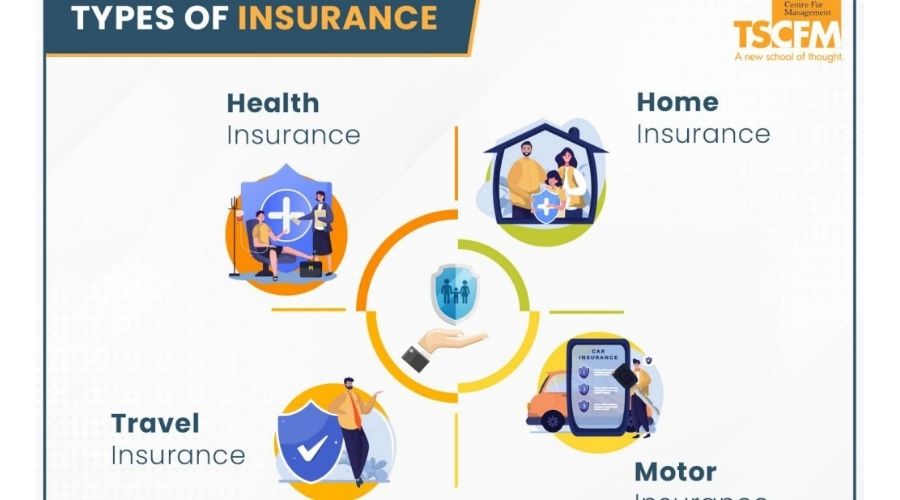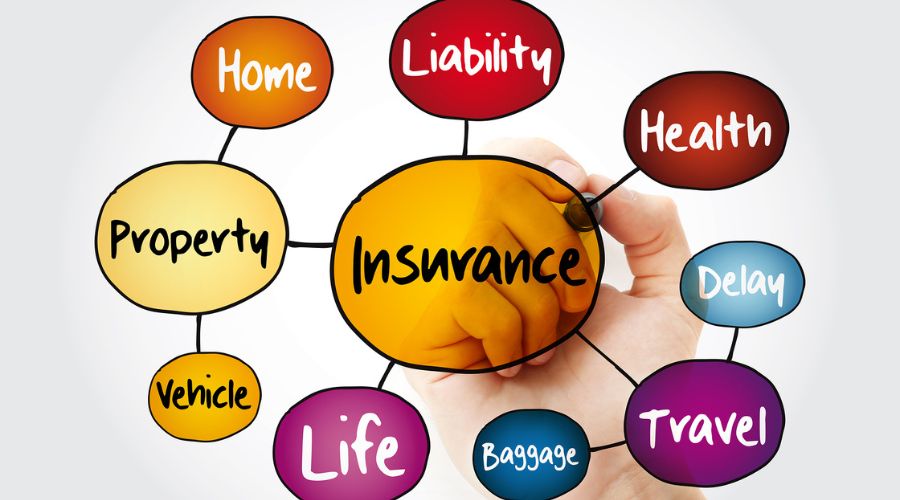https://noticviralweb.blogspot.com/2024/05/mejores-seguros.html, Choosing the right insurance can feel like navigating a maze with a blindfold on. With so many options and factors to consider. it’s easy to become overwhelmed. But don’t worry we’ve got you covered. In this guide we’ll walk you through everything you need to know to pick the best insurance for your needs. From understanding insurance basics to avoiding common mistakes. Let’s dive in and make this process as smooth as possible.
When it comes to finding the best insurance options, https://noticviralweb.blogspot.com/2024/05/mejores-seguros.html is your go-to resource. Whether you need health, life, auto, or home insurance, this site provides everything you need to make smart decisions about your coverage. In today’s world, having the right insurance is more important than ever, and this guide will help you understand why.
At https://noticviralweb.blogspot.com/2024/05/mejores-seguros.html, you’ll find detailed insights into different types of insurance and how to choose the best policy for your needs. From understanding the basics to comparing top providers, this site covers it all. Let’s dive in and explore how you can secure your financial future with the right insurance coverage.
Understanding the Basics of Insurance
Before you can select the right insurance policy. it’s essential to grasp some basic concepts. Let’s start from the ground up.
Different types of insurance cover different things. For example, health insurance helps with medical bills, while auto insurance takes care of car accidents. Home insurance protects your house and belongings, and life insurance provides for your loved ones if something happens to you. Each type of insurance is designed to protect something valuable to you.
When you’re thinking about getting insurance, it’s important to understand what each type covers. This will help you choose the right policies that fit your needs and keep you protected in case of any unexpected events. Knowing the basics can make you feel more confident in your decisions and better prepared for the future.
What is Insurance?
At its core insurance is a financial tool designed to protect you from potential losses. Think of it like a safety net that catches you if you fall. You pay a small amount regularlyy—known as a premium—and in return. The insurance company provides financial coverage for specific risks or losses.
Why Insurance is Crucial for Financial Security
Financial security means having enough money saved and protected to cover your needs now and in the future. Insurance plays a big role in this by covering costs that might otherwise drain your savings. For instance, without health insurance, a hospital visit could cost thousands of dollars, putting a huge strain on your finances.
Insurance not only protects your money but also your peace of mind. Knowing that you have coverage for your health, home, car, and life allows you to live without constant worry about “what if” scenarios. It’s like having a safety net that catches you if you fall, so you don’t have to face financial hardships alone.
Choosing the right insurance policies is a smart move for anyone looking to secure their financial future. It’s not just about paying for protection; it’s about making sure you and your family are covered if something unexpected happens. This makes insurance a crucial part of any financial plan.
Types of Insurance You Should Know About

There are many types of insurance, each serving a different purpose. Health insurance is one of the most important, covering medical expenses like doctor visits, hospital stays, and surgeries. Without health insurance, these costs can quickly add up, making it difficult to afford the care you need.
Auto insurance is another key type, especially if you own a car. It covers damages from accidents, whether they involve other vehicles, property, or even injuries. Auto insurance is often required by law, making it essential to have if you drive regularly.
Home insurance protects your biggest investment—your home. It covers damage from events like fires, storms, and theft. It also provides liability coverage if someone gets hurt on your property. Understanding these different types of insurance helps you choose the right coverage to protect all aspects of your life.
How to Choose the Right Insurance
Now that you understand the basics. let’s get into how to choose the right policy for you.Once you know what you need, start comparing different policies. Look at what each one covers, how much the premium costs, and what the deductibles are. A deductible is the amount you pay out-of-pocket before the insurance kicks in. Higher deductibles usually mean lower premiums, but make sure you can afford to pay the deductible if something happens.
It’s also important to check the reputation of the insurance company. Look for reviews from other customers to see how the company handles claims and customer service. A reliable company will make the process smoother and give you peace of mind that your claims will be handled fairly.
Assess Your Needs
Before diving into policy options. take a moment to assess what you actually need. Consider factors like your health. The value of your property, and your financial situation. This step is crucial because it helps you determine. what coverage is essential and what might be extra.
Compare Policies
Once you know what you need. it’s time to compare different policies. Look at the coverage each one offers and weigh it against your requirements. Don’t focus on premiums—check the deductibles limits and exclusions too.
Check Insurer’s Reputation
The insurer’s reputation is as important as the policy itself. You want to be sure that the company you choose is reliable and trustworthy.
Customer Reviews
Customer reviews can provide valuable insights. into how the insurer handles claims and customer service. Look for feedback from real customers to gauge their satisfaction levels.
Financial Stability
A company’s financial stability is critical because you want. to ensure they’ll be able to pay out claims when necessary. Check ratings from independent financial rating agencies. to assess the insurer’s financial health.
Top Health Insurance Options for 2024

Health insurance is vital for anyone who wants to avoid huge medical bills. In 2024, there are several top options to consider. Each plan offers different benefits, so it’s important to choose one that fits your health needs and budget. Some plans may have lower premiums but higher deductibles, while others might offer more comprehensive coverage.
When selecting a health insurance plan, think about your current health status and any regular medications or treatments you need. Make sure the plan you choose covers your preferred doctors and hospitals. Some plans might have limited networks, so it’s important to check that your healthcare providers are included.
Another factor to consider is preventive care. Many health insurance plans offer free or low-cost services like check-ups, vaccines, and screenings. These benefits can help you stay healthy and catch potential problems early, which can save you money in the long run. Picking the right health insurance plan can provide peace of mind and ensure you get the care you need when you need it.
Exploring Life Insurance Choices
Life insurance is a crucial part of financial planning, offering peace of mind that your loved ones will be taken care of if something happens to you. There are several types of life insurance policies to choose from, each with its own benefits and drawbacks. The most common options are term life insurance and whole life insurance.
Term life insurance provides coverage for a specific period, usually between 10 to 30 years. If you pass away during this term, your beneficiaries will receive a death benefit. This type of insurance is often more affordable than whole life insurance, making it a popular choice for young families and individuals with temporary financial responsibilities.
Whole life insurance, on the other hand, covers you for your entire life and includes a cash value component that grows over time. This means you can borrow against it or even use it as a savings tool. However, whole life policies tend to have higher premiums. Choosing the right life insurance policy depends on your financial goals and the needs of your beneficiaries.
Essential Tips for Auto Insurance
Auto insurance is not just a legal requirement; it’s a financial safeguard against accidents, theft, and other unexpected events on the road. To get the best coverage, start by understanding the different types of auto insurance available. Liability coverage is mandatory in most places and covers damages to others if you’re at fault in an accident.
Beyond liability, consider adding collision coverage, which pays for repairs to your car if it’s damaged in an accident, regardless of who is at fault. Comprehensive coverage is also worth considering, as it covers non-collision-related damages, such as those from theft, vandalism, or natural disasters.
When shopping for auto insurance, compare policies from different providers to find the best deal. Look at the coverage limits, deductibles, and any additional benefits like roadside assistance. Remember, the cheapest policy isn’t always the best—make sure it offers adequate protection for your vehicle and driving habits.
Common Mistakes to Avoid When Choosing Insurance

Choosing insurance can be overwhelming, and it’s easy to make mistakes. One common mistake is underestimating your coverage needs. Opting for the cheapest policy might save money upfront, but it could leave you with significant out-of-pocket expenses if something goes wrong.
Another mistake is ignoring policy exclusions. Every insurance policy has exclusions—situations or conditions that aren’t covered. Not being aware of these can lead to unpleasant surprises when you file a claim. It’s essential to read and understand these exclusions before committing to a policy.
Overlooking the total cost of the insurance is another pitfall. While the premium is an important factor, don’t forget to consider deductibles, co-pays, and any other out-of-pocket expenses. A lower premium might mean higher costs in the long run. Avoiding these common mistakes will help you choose a policy that truly meets your needs.
Ensuring Financial Stability Through Insurance
Insurance is a cornerstone of financial stability, providing protection against unexpected expenses that could otherwise deplete your savings. Whether it’s health, home, or auto insurance, having the right coverage means you won’t have to worry about how to pay for unexpected events like medical emergencies or property damage.
Health insurance, for instance, helps cover the high cost of medical care, ensuring you have access to the treatments you need without financial strain. Similarly, home and auto insurance protect your valuable assets, so you don’t have to dip into your savings or take on debt to repair or replace them.
By carefully selecting your insurance policies and making sure they match your financial situation and risk level, you can maintain financial stability even in difficult times. Insurance acts as a buffer, absorbing the shock of large expenses and allowing you to focus on what’s most important—your and your family’s well-being.
Ways to Save on Insurance Premiums
Saving on insurance premiums doesn’t have to mean sacrificing coverage. There are several strategies you can use to lower your costs while still getting the protection you need. One of the easiest ways to save is by bundling your policies. Many insurance companies offer discounts if you purchase multiple types of insurance, such as home and auto, from them.
Increasing your deductible is another effective way to reduce your premium. A higher deductible means you’ll pay more out-of-pocket if you file a claim, but it can significantly lower your monthly premium. Just make sure you have enough savings to cover the deductible in case of an emergency.
Taking advantage of discounts is another way to save. Many insurers offer discounts for things like having a good driving record, installing home security systems, or being a non-smoker. Be sure to ask your insurance provider about all available discounts to ensure you’re not missing out on savings.
Understanding Policy Exclusions and Limits

When you purchase an insurance policy, it’s crucial to understand what it does and doesn’t cover. Every policy has exclusions—specific situations or types of damage that are not covered by the insurance. For example, standard home insurance might not cover flood damage, requiring a separate policy.
Policy limits are another important factor to consider. These limits define the maximum amount the insurance company will pay for a covered loss. If your damages exceed the policy limit, you’ll be responsible for the difference. This is why it’s essential to choose coverage limits that reflect the true value of your assets.
Reading the fine print of your insurance policy can prevent unpleasant surprises when you need to file a claim. Understanding the exclusions and limits will help you choose the right coverage and ensure you’re fully protected.
The Importance of Reading Reviews Before Choosing an Insurer
Choosing the right insurance company is just as important as choosing the right policy. Before you commit to a provider, it’s wise to read customer reviews. These reviews can give you insights into the experiences of other policyholders, particularly regarding customer service and the claims process.
Reviews can also help you identify any potential red flags, such as frequent complaints about denied claims or poor communication. A company that has consistently positive reviews is more likely to provide reliable service and honor their commitments.
In addition to reading reviews, you should also check the financial stability of the insurance company. This ensures they have the resources to pay out claims when needed. By doing your research, you can choose an insurer that is trustworthy and dependable.
Navigating the Claims Process at https://noticviralweb.blogspot.com/2024/05/mejores-seguros.html
Filing an insurance claim can be stressful, but knowing what to expect can make the process smoother. At https://noticviralweb.blogspot.com/2024/05/mejores-seguros.html, the claims process is designed to be as straightforward as possible. The first step is to report the incident to your insurance company as soon as possible.
After you report the claim, the insurance company will assign an adjuster to assess the damage and determine the claim’s value. It’s important to document everything related to the incident, including photos, receipts, and any other evidence that supports your claim.
Clear communication with your insurer throughout the process is key. Keep track of all correspondence and follow up regularly to ensure your claim is being processed. Understanding the claims process at https://noticviralweb.blogspot.com/2024/05/mejores-seguros.html will help you navigate it with confidence and get the support you need during a challenging time.
Comprehensive Coverage: What https://noticviralweb.blogspot.com/2024/05/mejores-seguros.html Offers
Comprehensive coverage is one of the most important aspects of any insurance policy, offering protection beyond basic liability. At https://noticviralweb.blogspot.com/2024/05/mejores-seguros.html, you can find comprehensive coverage options that protect against a wide range of risks. This type of coverage is especially useful for things like theft, vandalism, or natural disasters that aren’t covered under standard policies.
When you opt for comprehensive coverage, you’re choosing to protect yourself from the unexpected. This can include anything from a tree falling on your car to flood damage in your home. The key is to ensure that the policy you choose fits your specific needs and risks.
Exploring the comprehensive coverage options available at https://noticviralweb.blogspot.com/2024/05/mejores-seguros.html will help you find the right policy to safeguard your assets. This peace of mind is invaluable when it comes to protecting your financial future.
Underestimating Coverage
It’s tempting to go for the cheapest policy. But underestimating your coverage needs can lead. to significant out-of-pocket expenses if something goes wrong. Make sure you have enough coverage to protect yourself adequatelyy.
Ignoring Exclusions
Every policy has exclusions—specific situations or conditions not covered by the insurance. It’s crucial to read and understand. These exclusions so you’re not caught off guard when you need coverage the most.
Overlooking Costs
While comparing premiums is important. Don’t overlook other costs such as deductibles co-payments and out-of-pocket maximums. A policy with a lower premium might have higher deductibles. So make sure you’re comfortable with the total cost of the coverage.
Planning for the Future with the Right Insurance
Planning for the future involves more than just saving money; it also means protecting what you have. The right insurance policies play a crucial role in this by safeguarding your assets and providing financial security in the event of unexpected events. Whether it’s health, life, or home insurance, having the right coverage ensures that you and your loved ones are protected.
When planning for the future, consider your long-term goals and how insurance fits into them. For example, if you plan to buy a home, you’ll need homeowners insurance. If you’re starting a family, life insurance becomes essential. By thinking ahead, you can choose policies that will grow with you and continue to meet your needs.
Reviewing your insurance coverage regularly is also important. As your life changes, so do your insurance needs. Ensuring that your policies are up-to-date and still provide adequate coverage will help you stay prepared for whatever the future holds. With the right insurance in place, you can face the future with confidence.
Conclusion
Choosing the right insurance isn’t about finding the lowest premium. It’s about finding a policy that meets your needs. Understanding what’s covered and ensuring the insurer is reliable. By assessing your needs comparing policies and avoiding common mistakes. You’ll be better equipped to make an informed decision. Remember, the goal is to protect yourself. and your loved ones from unexpected financial burdens. With the right approach. you can find an insurance policy that provides peace of mind and security.
FAQs
1. What factors should I consider when choosing health insurance? When choosing health insurance consider your current health status. The coverage options (like preventive care and specialist visits). The cost of premiums, deductibles, and out-of-pocket maximums.
2. How often should I review my insurance policies? It’s a good idea to review your insurance policies annuallyy or whenever you experience. significant life changes such as moving, changing jobs or having a baby.
3. Can I switch insurance providers if I’m unhappy with my current one? Yes, you can switch insurance providers. Yet, make sure there’s no lapse in coverage and that you thoroughlyy understand. The terms of your new policy before making the switch.
4. What should I do if I have a dispute with my insurance company? If you have a dispute with your insurance company. Sart by contacting their customer service. If the issue remains unresolved. You can escalate it to a state insurance regulator or seek legal advice.
5. How can I save money on my insurance premiums? To save money on insurance premiums consider increasing your deductibles. Bundling many policies with the same insurer and taking advantage of discounts. for things like safe driving or home security systems.
